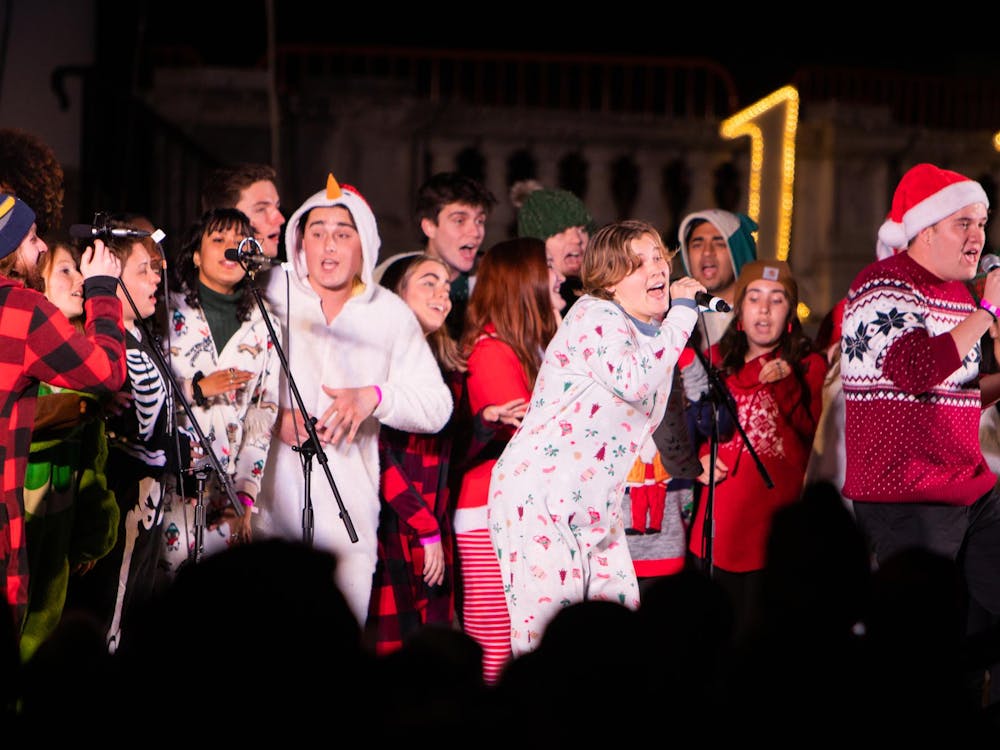They sat in front of a TV screen in the Newcomb Hall Boardroom, attentively watching "Friends." A volunteer offered the group snacks. A quiet voice asked, "What is popcorn?"
This was not a typical night of Must-See TV.
For the small group, watching the hit sitcom is part of a cultural exchange program that matches up American undergraduate students with teaching assistants of international backgrounds. With a 50 percent increase in international TAs over the past two years, the popularity of the 10-year-old International Teaching Assistant program has grown tremendously.
The program is "one-third cultural, one-third teaching strategies and one-third language skills," program director Elizabeth Wittner said. The classroom portion of the program includes weekly presentations that the TAs make to a group of volunteer mock students. These volunteers pose questions to the TAs just as their own students would. Each TA's performance is videotaped and individually evaluated by the instructor. The classroom setting also provides assistance with any pronunciation questions the TAs may have.
Pronunciation and language skills aside, the TAs also must learn American culture. For the participating TAs, most of whom are Chinese, coming to the United States is a big shock. Faced with learning another language - not to mention the task of teaching in this new language - the TAs also must learn about American undergraduate life, which is far different from undergraduate life in their homelands.
In China there is no concept of undergraduate life. Undergraduate life means studying, not socializing.
"The program offered me the opportunity to practice my communication and teaching skills and gave me the confidence to communicate with people, including students, professors and even people I'm not very familiar with," said Chemical Engineering TA Hongmei Wen. Wen was a student in the ITA class last year and now teaches a class of her own.
"I understand in more detail about the culture and student life here, since I did not attend undergraduate school in America," Wen said. "Some pronunciations I have problems with. If you don't understand, you can teach me."
During "Friends" commercial breaks, volunteers and TAs discussed the plot's cultural significance, including topics such as gender roles and American women's concept of body image. Volunteers explained American women don't like to be called fat and that men feel uncomfortable when other men display affection toward them.
They also got to eat some good American snacks - popcorn, Twizzlers and cupcakes abounded.
"What do Twizzlers taste like?" was countered by "You just have to taste it for yourself."
These TAs must take a bite out of American culture. The ITA program helps them do just that with the assistance of some very understanding and committed University students.
"These TAs come to this University with multiple challenges, and they need the cooperation of their students to do a good job. There is a huge potential for miscommunication and frustration, but these volunteers are taking it into their own hands to make a difference," Wittner emphasized.
It is often difficult for them to pronounce sounds in English that do not exist in their native tongue. This situation is often worsened by some of the TAs' students, who are a little more impatient than others. Most of the time, all the TAs need from their students in order to do their jobs well is a little understanding.
In addition to classroom instruction, the TAs are matched up with language partners who spend time with them every week to strengthen their English and knowledge of American culture. The language partners are volunteer undergraduate and graduate students. The TAs and volunteers also go bowling, hiking and attend movies and sporting events together.
"He tells me jokes, we go out to eat, and we had Thanksgiving at my house. We took some of the TAs to a football game here, and they were so fascinated by why everyone was so hyper," fourth-year College student Cara Rooney said of the time she spent with her TA partner, Ruiqing Zhu.
The relationship between the volunteer students and the TAs is by no means one sided.
"I was tentative at first, but there is a bond that develops over the year, and you get to know the TA as a person," second-year College student Angela An said. "It gives you a new perspective and it's really eye opening"




